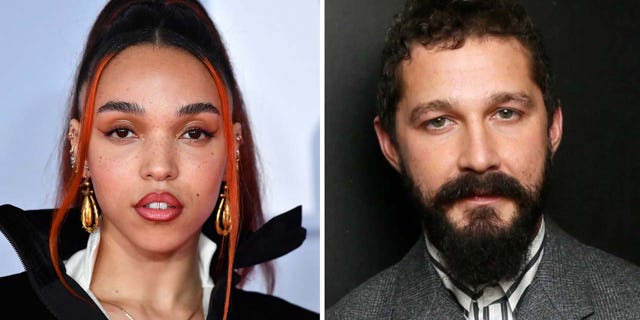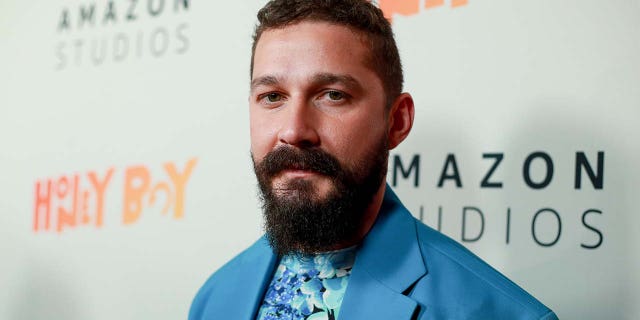Shia LaBeouf is seeking treatment.
The actor was recently caught in headlines when his ex-girlfriend, singer FKA Twigs, accused him of physical, emotional and mental abuse in a lawsuit.
The suit was filed by the musician — born Tahliah Debrett Barnett — on Dec. 11, and details several alleged incidents, including the actor “recklessly” driving a car with Barnett inside, “threatening to crash unless she professed her love for him,” per the suit.
In a response to the New York Times, LaBeouf said he has “no excuses for my alcoholism or aggression, only rationalizations.”
Since then, he’s faced more trouble in the form of similar accusations from the singer Sia and having his name removed from Netflix’s awards consideration page.

FKA Twigs has filed a lawsuit against Shia LaBeouf, accusing him of abusing her during their former relationship.
(Getty Images/Reuters)
Now, it seems the “Honey Boy” star, 34, is moving forward.
“Shia needs help and he knows that,” LaBeouf’s attorney said to Variety. “We are actively seeking the kind of meaningful, intensive, long-term inpatient treatment that he desperately needs.”
LaBeouf’s past is riddled with strife as well, as he struggled with addiction to drugs and alcohol and suffered several public breakdowns after rising to fame as a young star on Disney Channel’s “Even Stevens.”
SHIA LABEOUF’S NAME IS REMOVED FROM NETFLIX’S AWARD CONSIDERATION PAGE AMID FKA TWIGS LAWSUIT
Until the scandal broke, the actor was considered an awards contender for his upcoming Netflix film “Pieces of a Woman” opposite Vanessa Kirby, already a favorite to take home an acting trophy this season. Sources told the outlet, however, that the streamer and even the actor himself felt that campaigns should be focused on Kirby and Ellen Burstyn.

Shia LaBeouf is seeking ‘treatment,’ his lawyer says, after allegations of abuse were made against him in a lawsuit. (Photo by Rich Fury/Getty Images)
After filing the suit, FKA Twigs addressed her allegations on Twitter.
CLICK HERE TO GET THE FOX NEWS APP
“It may be surprising to you to learn that I was in an emotionally and physically abusive relationship,” she began a string of tweets. “It was hard for me to process too, during and after I never thought something like this would happen to me.”
CLICK HERE TO SIGN UP FOR OUR ENTERTAINMENT NEWSLETTER
Barnett said in coming forward, she hoped “to help people understand that when you are under the coercive control of an abuser or in an intimate partner violent relationship leaving doesn’t feel like a safe or achievable option.”